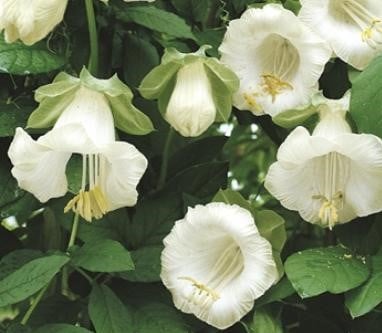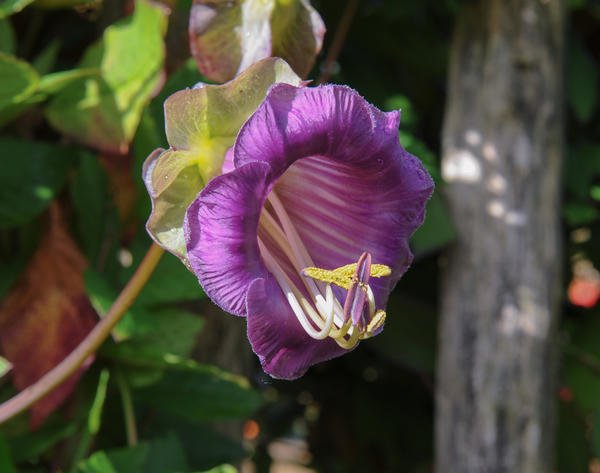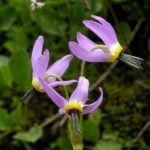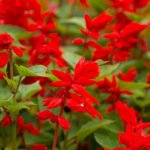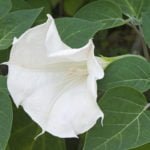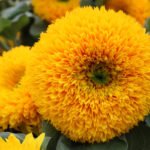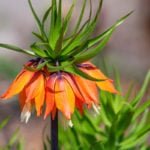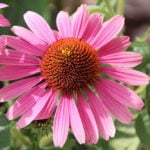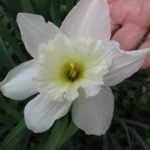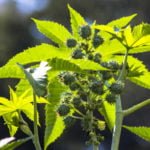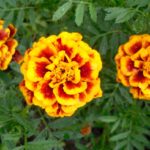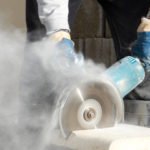Cobaea is an amazingly beautiful magic vine, striking with openwork leaves, quickly creating an elegant green carpet, and numerous intricate flowers like bells.
Cobaea is a perennial climbing flowering plant grown as an annual plant. It received its name in honor of Barnabas Kobo — the famous Spanish naturalist and Jesuit, who for many years lived in Peru and Mexico – the birthplace of Cobaea.
Believe me, you will not find another vine as quickly growing and decorative as Cobaea. Its tenacious stem, which is located a lot of antennae with heart-shaped leaves, reaches 6 m in height. A touching flowers in the shape of bells reach 8 cm in diameter and bloom from July to October, affecting not only its size, but also an abundance of colors: white, purple, purple, light salad and even Burgundy.
How to Grow Cobaea
Cobaea cultivation is a simple and exciting process, but it requires certain skills and compliance with the conditions of agricultural machinery.
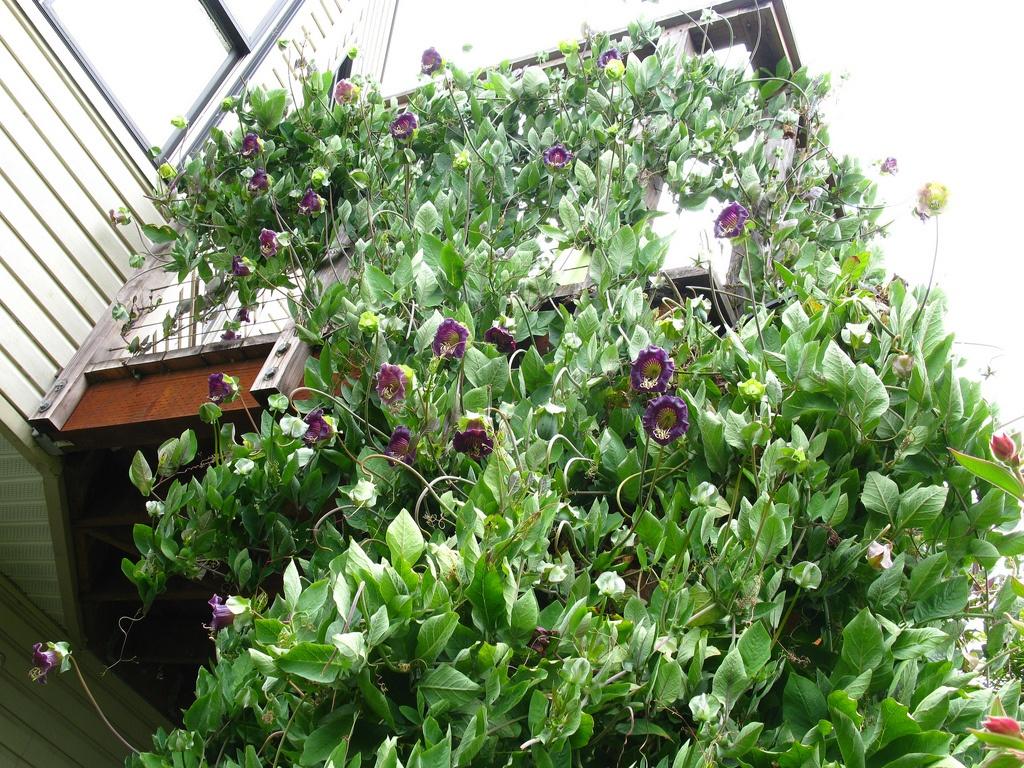
Cobaea prefers to grow in open areas with fertile, loose soil. The plant is very fond of the sun, relatively well tolerated a small penumbra and very poorly developed in the shade. Growing Cobaea note that its young seedlings do not tolerate cold, but adult plants are able to withstand lower temperatures.
Reproduction of Cobaea
Cobaea seeds can be sown from late February to mid-March. On the eve of sowing, just a few hours before it, soak them in a solution of growth stimulant.
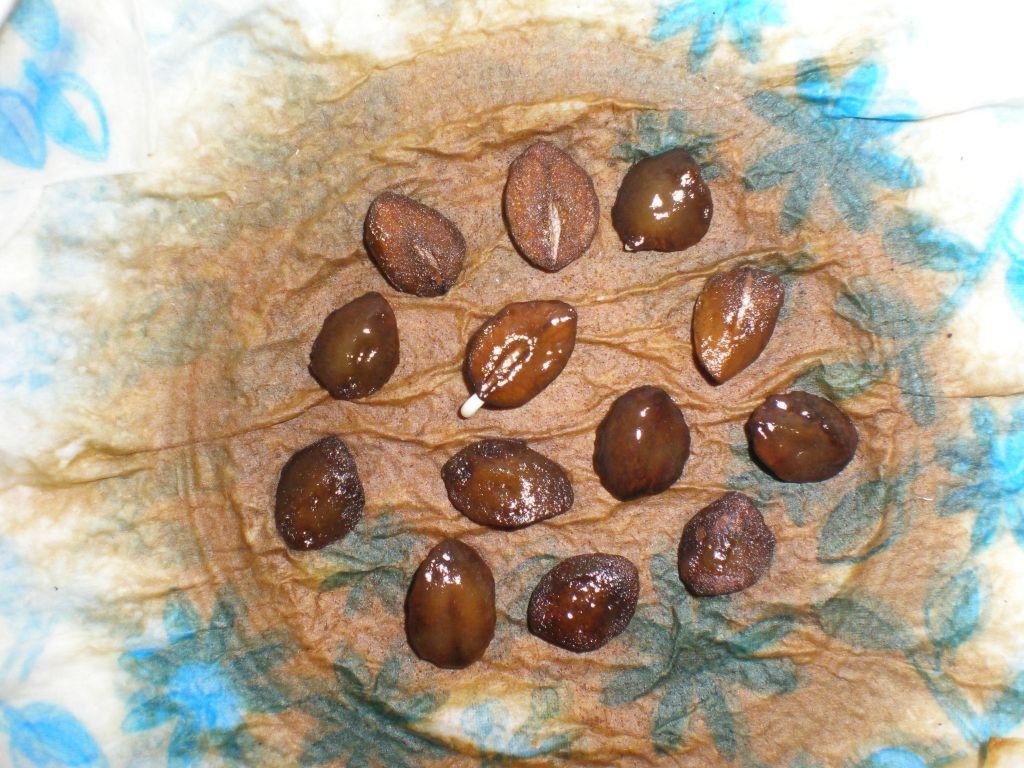
So during the planting and extraction of the seedlings not to harm them, every seed are best sown in individual cups filled with universal land substrate. Sprinkle seeds on top layer of soil thickness of about 1.5 cm Seedlings plants should appear after 14 to 25 days after sowing.
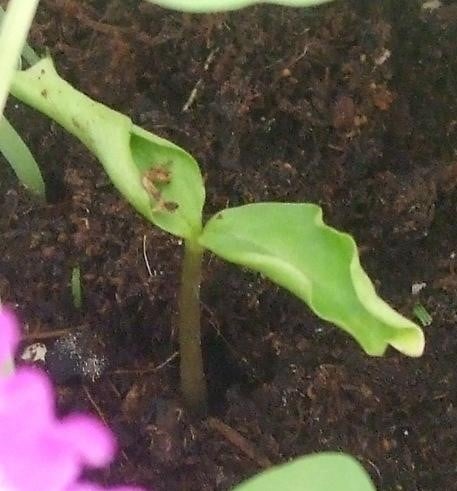
Wanting To get cobaea sprouting as early as possible, you just need to germinate of large seeds. To do this, in several layers, fold ordinary toilet paper and, abundantly moistened with water, spread the seeds on it. They must be laid out very carefully and in such a way that they do not touch each other. Put the container with the seeds in an ordinary film bag and keep in the light. If during the germination of seeds (which is about 2 weeks) they will mold, they will need to be gently washed, and the paper will replacement.
Once the Cobaea seeds begin to sprout, place them flat side down in a loose substrate and, like the seeds that are not sprouted, sprinkle with a layer of earth about 1.5 cm thick.
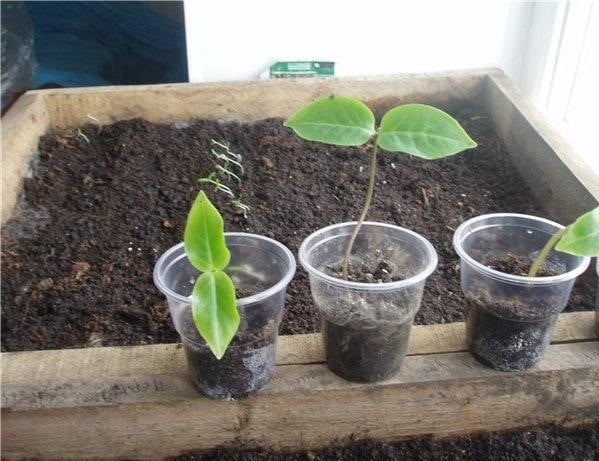
As soon as the seedlings grow a little and they will have two leaves (according to my observations, it is in early April, if you sow seeds in the middle of March), they need to be moved to a fairly large container (about 3 liters). To do this, first abundantly watered seedlings with water, then carefully remove them and together with the old lump of land put in a new container, filling the edge of the new land substrate.
By moving Cobaea seedlings to such large containers you will give the plant the opportunity to develop a powerful root system, which is essential for its further growth. And shoots at the time of transplantation to the flower bed will be able to form well and get stronger.
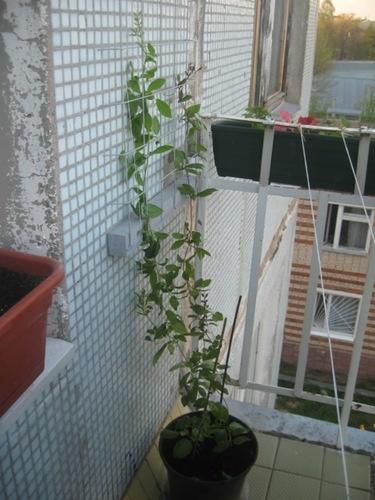
Before planting in the open ground Cobaea seedlings need temperature. To do this, expose them, for example, on the glazed balcony.
Cobaea can be propagated not only by seeds, but also by cuttings pre-planted in wet sand.
Landing Cobaea
Cobaea seedlings can be planted in a permanent place not earlier than the first days of June: young plants are very afraid of even the slightest coldness . Planting holes must be prepared in advance, placing them at a distance of 0.5 m from each other and filling with loose fertile soil.
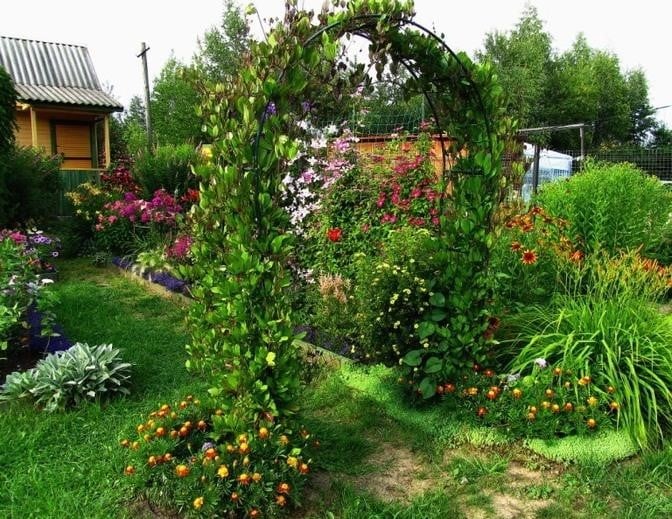
Before planting abundantly watering the plants in pots, and then carefully, along with the lump of earth, remove them. Extracted lower the seedling in the prepared hole and lightly bury and immediately pour a little of the.
Care of Cobaea
From the very first days of life, Cobaea seedlings need care: for them, we build small supports that can be removed after planting the plant in the ground. In the garden, the role of support can be performed by various buildings, small trees and pergolas, on which Cobaea easily climbs.
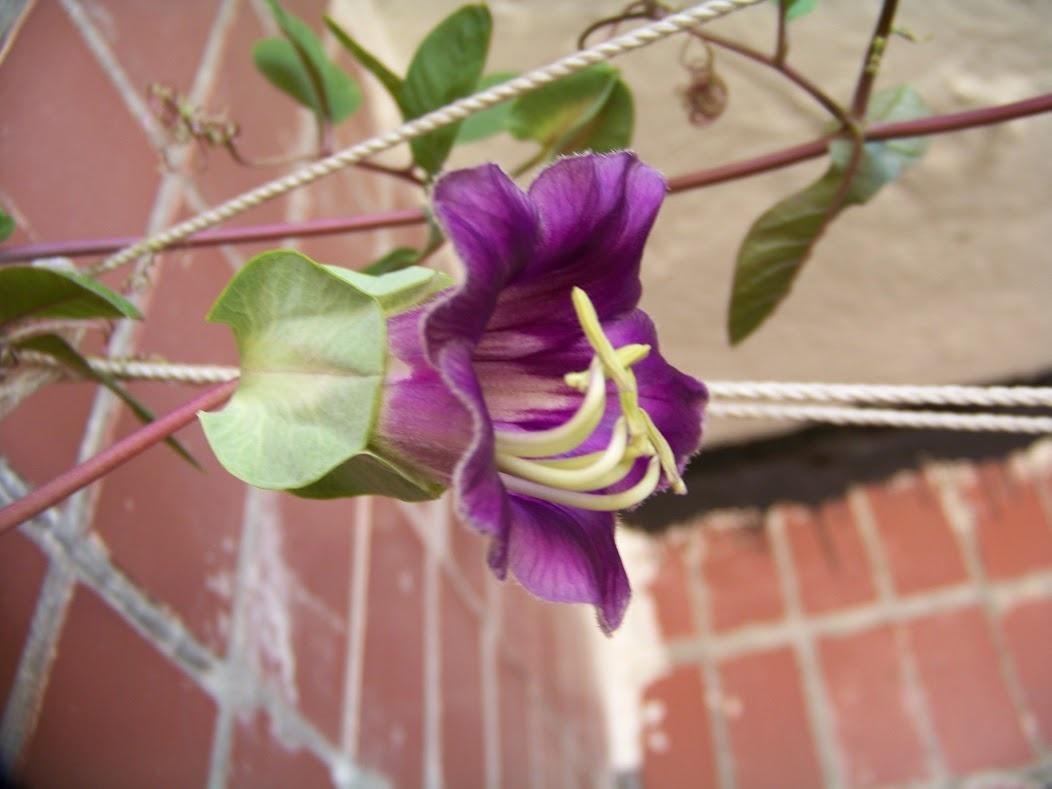
Watering
Throughout the period of development of Cobaea likes regular watering, and in dry weather, moisture should be especially abundant. Despite the fact that the plant loves moist soil, try to prevent excess moisture, otherwise it can develop root rot.
Additional fertilizing
Features of the plant are that at the beginning of its growth, Cobaea needs a lot of nitrogen, and when it begins to form buds, it needs more potassium and phosphorus.
Feed Cobaea start literally from the first days of her life – even before planting in the ground, as soon as the first leaf appears on the plant.
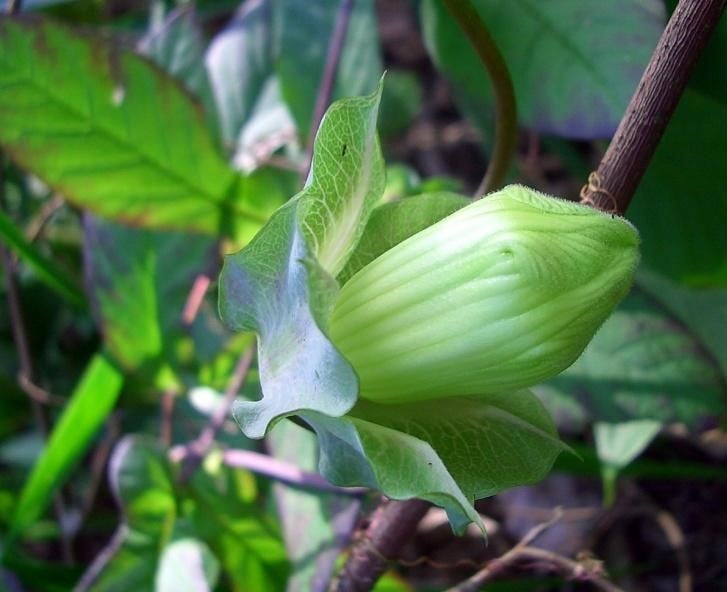
To after landing Cobaea was able to quickly gain green mass, it is also necessary to often (every 7 days) to feed: alternate feeding organic fertilizers with mineral fertilizing. Cobaea reacts very well to fertilizing with a solution of phosphorus-potassium fertilizers.
Given that the plant is very prone to attacks of harmful insects, especially spider mites and aphids, it must be regularly inspected, and, in the case of pests, in time to assist.
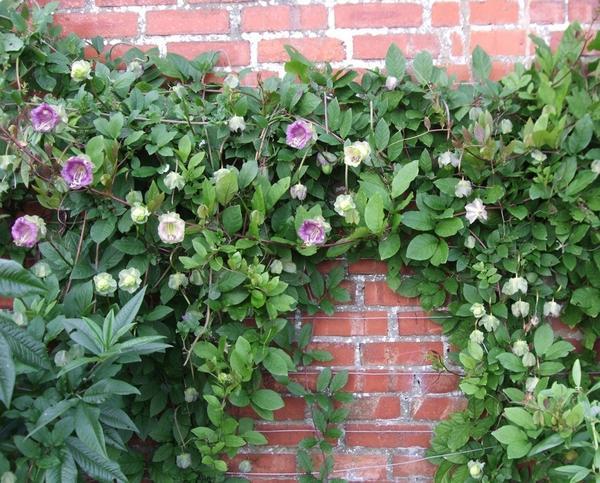
If you want to grow Cobaea as a perennial, for the winter (somewhere in mid-October) cut its stems, dig the plant itself, transplant in a small container and keep it until spring in a cool shelter. The best place to store Cobaea is the cellar.
Take care of the plant in the winter there is no need, just do not allow the drying of the soil. With the onset of spring (March), Cobaea must be exposed to the light, and slightly increase watering. Cobaea can be planted in the open ground by the end of may, choosing fertilized fertile soils for its planting.
Cobaea scandens
Cobaea is a flowering vine with 9 different species native to the tropics of South America, although today only one species is cultivated — Cobaea scandens.
This most common type of tropical Cobaea can be either white or purple flowers. The plant comes from Mexico, forms a set of shoots reaching 4 m in length. The leaves of this species are pinnate, end in a branched antenna, with which the plant and clings to the support. Blooms Cobaea scandens for a long time.
